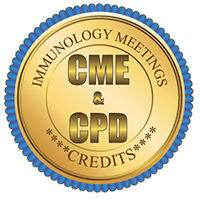
Barbara Chirullo
Istituto Superiore di Sanità , Italy
Title: Bacteria: friends or foes? Anticancer immune strategy by attenuated mutant strain of Salmonella Typhimurium (STMZNUABC)
Biography
Biography: Barbara Chirullo
Abstract
Cancers are among the leading causes of death worldwide, entailing also what is now called financial toxicity. Conventional treatment modalities (surgery, chemo-†and radiotherapy) have considerable limitations, which often result in incomplete destruction of the tumors. Therefore, prevention and control of cancer diseases is an important task for today’s medicine, due to the possible implications of such diseases on public health and to their economic consequences. And to their economic consequences. Therefore, the development of new therapeutic strategies to fight cancer is a priority for research. In this regard, the use of bacteria as alternative cancer therapeutics, in particular their potential to selectively target cancer cells has been studied for more than a century.
We, therefore investigated the tumor targeting efficacy and the mechanism of action of a specific attenuated mutant strain of Salmonella Typhimurium (STMznuABC) devoid of the whole operon coding for the high-â€affinity zinc transporter ZnuABC, which is required for bacterial growth in environments poor in zinc and for conferring full virulence to different Gram-â€negative pathogens.
The results indicated that STMznuABC is able to penetrate and replicate into tumor cells in in- vitro and in vivo models. The subcutaneous administration of STMznuABC in mammary adenocarcinoma mouse model leads to both reduction of tumor growth and increase in life expectancy of STMznuABC treated mice. Moreover, investigating the potential mechanism behind the favorable clinical outcomes, we provide evidence that STMznuABC stimulates a potent inflammatory response and a specific immune pattern, recruiting a large number of innate and adaptive immune cells capable to contrast the immunosuppressive environment generated by tumors. Exploring the tumor microenvironment of STMznuABC-â€treated mice, we found that STMΔznuABC is able to increase the number of neutrophil cells, interferon gamma CD8+ cells and a Th1 immune profile phenotype. On the whole, our results support the potential STM as a promising anti-â€cancer therapy.

